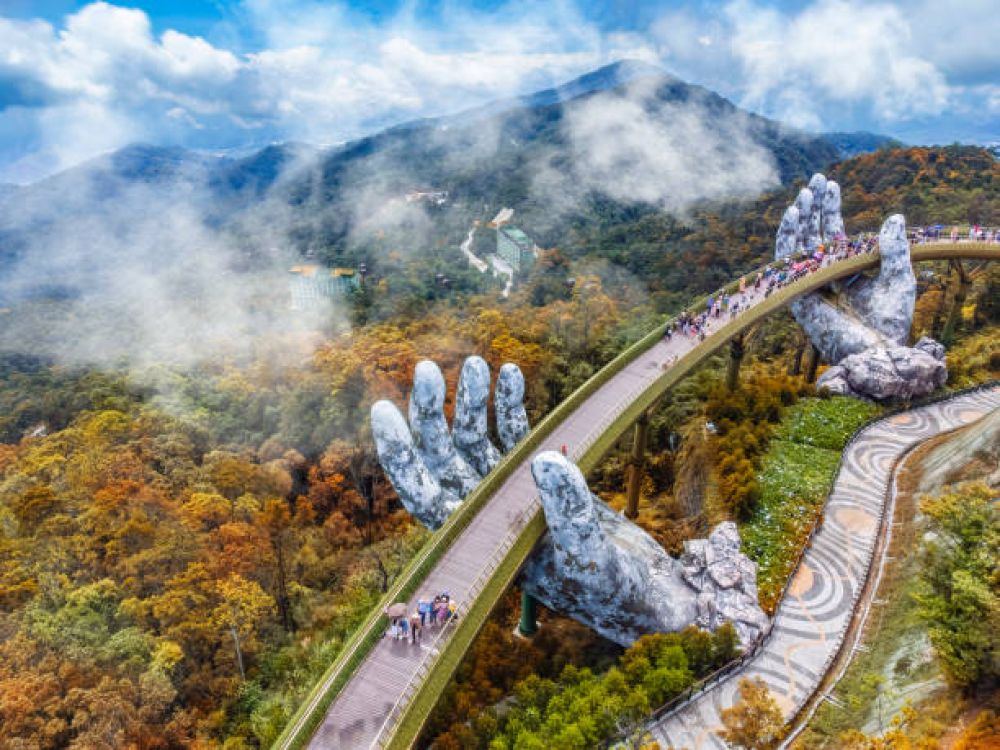

Da Nang, the coastal city in central Vietnam, has a rich history intertwined with its rise as a tourism hotspot. At the dawn of Vietnam's opening up to the world economy in the late 20th century, Da Nag was primarily known for its strategic military importance during the Vietnam War. However, peacetime brought with it the recognition of Da Nang's potential as a treasure trove for cultural and natural attractions.
The tourism in Da Nang began modestly, with the discovery of its beautiful beaches and historical sites drawing in a growing number of domestic tourists. Initially, the infrastructure was quite rudimentary, with limited accommodation options and basic touristic services. Yet, the stunning beauty of the landscape and the warmth of the local population began to attract adventurous international travelers.
The turning point for Da Nang tourism came in the 1990s and early 2000s when the Vietnamese government identified tourism as a key driver for economic development. Significant investment was subsequently channeled into improving tourist infrastructure. Resorts, hotels, and other amenities began to spring up along the coast, particularly around the now-famous My Khe Beach.
Da Nang's place on the world tourism map was solidified when it started hosting international events such as the annual Da Nang International Fireworks Festival and the APEC Summit in 2017. These events brought global attention to the city and showcased its capacity to hold large-scale international gatherings, further promoting its appeal to a broader audience.
Today, Da Nang is known for its harmonious mix of cultural heritage and modern development. Sites such as the Marble Mountains, My Son Sanctuary, and the Museum of Cham Sculpture provide visitors with a glimpse into the region's rich history. Meanwhile, the Dragon Bridge and the Sun Wheel highlight contemporary architectural achievements. In recent years, the city has also developed an exciting culinary scene that attracts food tourists from around the world.
In keeping up with global tourism trends, Da Nang has embraced eco-tourism and sustainable practices. The InterContinental Danang Sun Peninsula Resort is a prime example of luxury blended with sustainability. Additionally, Da Nang is promoting community-based tourism, allowing visitors to experience authentic Vietnamese culture by interacting closely with local communities.
Despite its growth, Da Nang's tourism industry faces challenges such as the need for environmental conservation amid rapid development and competition with other regional destinations. Yet, with its strategic vision, Da Nang continues to strive towards balanced development, aiming to maintain its position as a must-visit destination in Southeast Asia.
The historical trajectory of tourism in Da Nang reflects a city that has swiftly transformed from a war-torn region to a vibrant tourist destination. Today, Da Nang stands proudly as an emblem of Vietnam's potential, offering a juxtaposition of history, culture, modernity, and breathtaking natural beauty, while continuously evolving to meet the changing demands of global tourism.